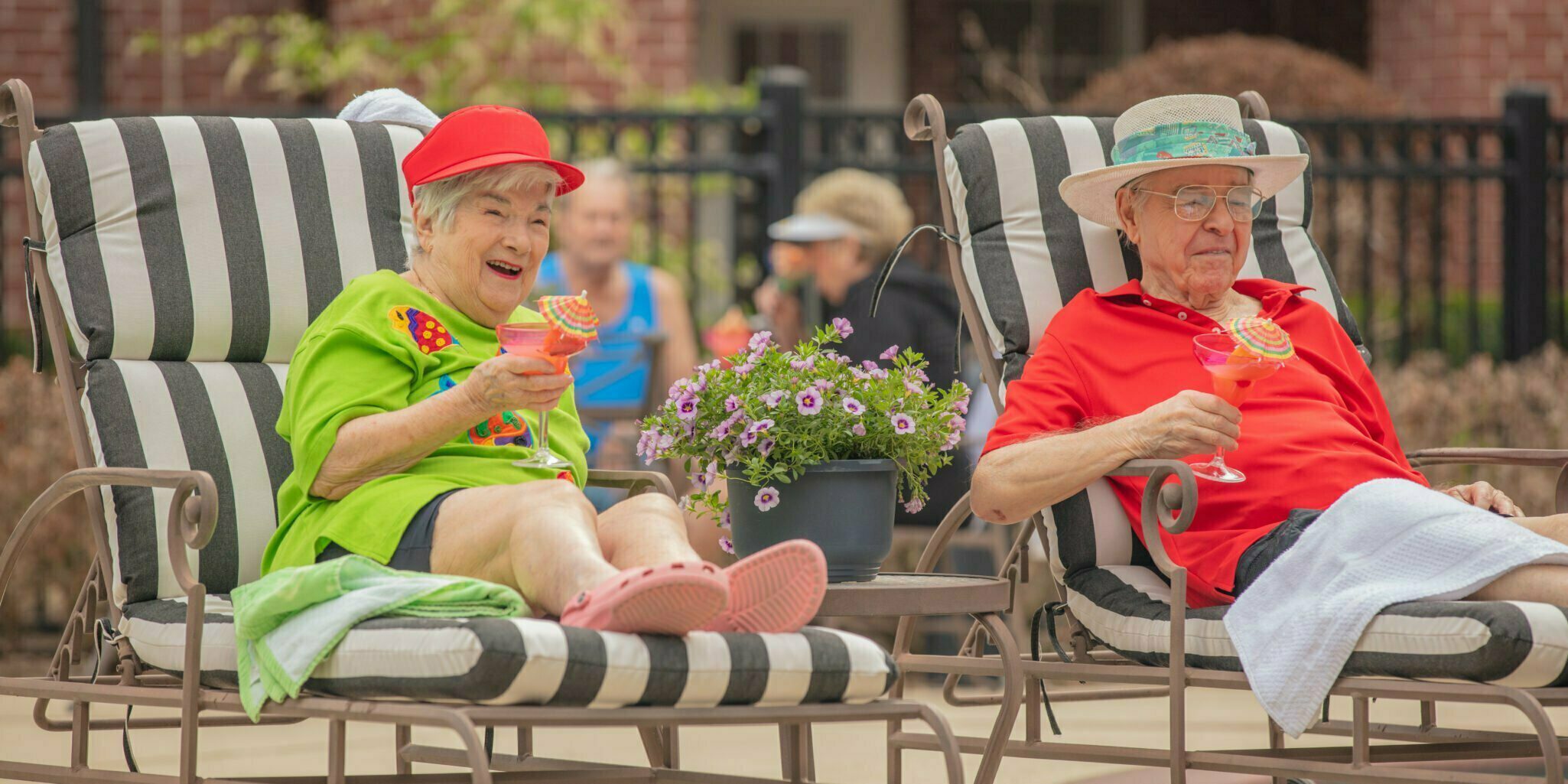
Is It Normal Memory Loss or Dementia?
Every one of us experiences some degree of physical and mental decline as we age. It’s completely normal. But there’s a stark difference between normal cognitive decline and brain deterioration caused by dementia. However, the differences aren’t always easily recognizable, especially in the early stages of dementia, leaving many concerned seniors wondering if they’re experiencing normal memory loss or dementia. The most important thing you or your loved ones can do to determine the difference is learning the causes, signs, and symptoms of both normal memory problems and more serious conditions like Alzheimer’s disease and other forms of dementia. This overview will help you do just that.
Normal Memory Loss
As we age, our brains naturally change just like the rest of our bodies. Even within the brain itself, different parts change at different rates. The amygdala, hippocampus, cerebellum and prefrontal cortex all play a role in memory, and all tend to decrease in function naturally as we age. Normal memory loss accounts for things like occasionally forgetting to pay a bill, losing items from time to time, or sometimes forgetting which word to use. This doesn’t necessarily point to Alzheimer’s disease or other forms of dementia. There are a variety of causes that can contribute to normal memory problems.
Emotional Causes of Memory Loss
Strong emotions induced by life changes are a common cause of memory problems and forgetfulness. Stress, anxiety, depression, and coping with loss can make us distracted and mentally exhausted. So naturally, we become more forgetful or confused during these times. But remember that these emotions are usually temporary. Leaning on friends and family for support, doing physical exercise, and engaging your mind by learning something new or taking up a new hobby can help alleviate memory problems caused by emotional stress. However, if you experience these emotions and worsening memory problems for more than a few weeks, you should consult your doctor.
Medical Causes of Memory Loss
A variety of medical conditions less severe than dementia can contribute to memory loss, especially after a surgery or medical procedure. Some of the most common conditions are tumors, blood clots, brain infections or head injuries, and thyroid, kidney or liver disorders. Some prescription medications and treatments can also contribute to memory problems, so it’s important to consult your doctor if you experience noticeable memory loss and are on medication.
Lifestyle Causes of Memory Loss
Your habits in daily life can often contribute to memory problems. The most common is sleep deprivation or fatigue. Sleep is a vital component of both physical and mental health, and a lack of sleep is proven to reduce brain function. Chronic fatigue can even contribute to some forms of dementia. Another common cause is poor nutrition, specifically not enough intake of vitamin B12, a key element in brain health. Deficits in vitamin B12 in older adults can often lead seniors to question if they’re experiencing normal memory loss or dementia. Eating foods packed with B12 like fish, eggs, yogurt and liver can help get your brain back to normal.
Alzheimer’s Disease and Other Forms of Dementia
One in 10 people age 65 and older have Alzheimer’s disease or other forms of dementia. Although there is no known cure, there are ways to make the disease more manageable, starting with recognizing Alzheimer’s symptoms as early as possible. In stage 1, called early Alzheimer’s, lapses in memory or other memory problems begin to occur, including:
- Recalling the right word or name for something
- Remembering the names of people they’ve just met
- Finding it difficult to perform routine tasks in social or work settings
- Forgetting information they’ve just read
- Misplacing commonly used items or forgetting where they put something
- Beginning to struggle with planning and organizing
It’s incredibly important to know the symptoms of stage 1 of Alzheimer’s disease, as early diagnosis can make all the difference in how the disease is treated and the longevity of a person with Alzheimer’s disease. The sooner a person is diagnosed, the more effective treatments are in delaying the next two stages. But all too often, symptoms aren’t recognized until the person is in stage 2, in which behavioral changes are more apparent. Throughout this stage, nerve cells in the brain deteriorate, making the expression of thoughts and performing of daily tasks increasingly difficult. Stage 2 symptoms typically include:
- Trouble remembering personal history or events
- Feelings of isolation
- Memory loss relating to things like their address or telephone number
- Confusion about where they are or what season it is
- Changes in sleep patterns, such as sleeping during the day and becoming restless at night
- Problems with incontinence and proper hygiene
- Increased tendencies to wander
- Paranoia, delusions, or compulsive, repetitive behavior
By stage 3, there’s no longer a question whether a person has normal memory loss or dementia – which makes it all the more important to recognize the early symptoms of Alzheimer’s disease and other forms of dementia so that treatment can begin, and independence can be maintained for as long as possible.
Proactive Memory Support at The Buckingham
Trying to discern the difference between normal memory loss or dementia can be a stressful, frightening experience. If you feel that you or a loved one is exhibiting signs of Alzheimer’s disease or other forms of dementia, the first thing to do is schedule a consultation with your doctor or another memory specialist. Here at The Buckingham, dedicated, specially trained memory support team members work carefully to employ the most comprehensive and impactful approaches within a household-like environment. We take a holistic approach to determining the causes of memory problems in a dignified, personalized way. To learn more about our progressive memory support care, don’t hesitate to contact us through our website or call us any time at 713-979-3090.

